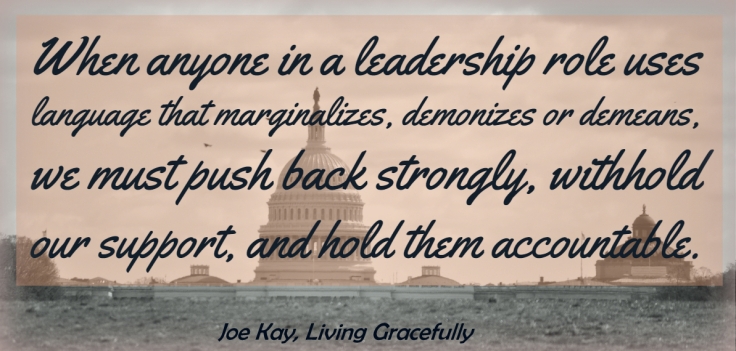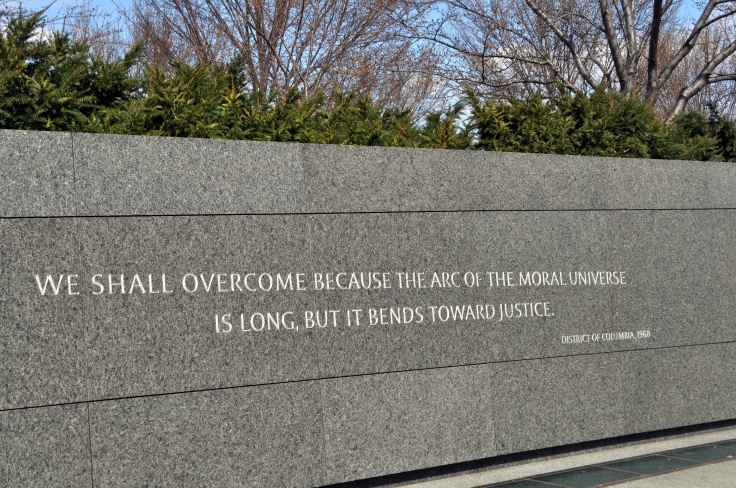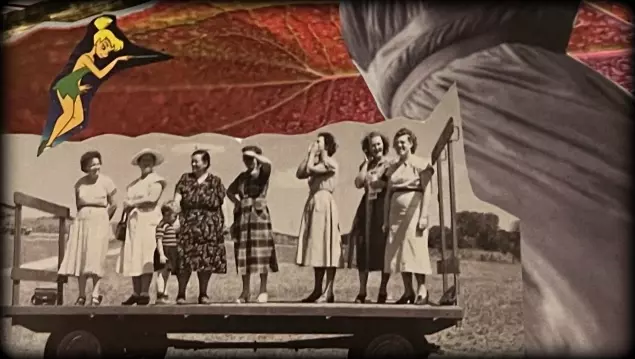Sometimes I just don’t know when to shut up. Words, words, and more words.
I love words—to write them and to read them. I have been considering how I use words after reading The Power of Words by Joe Kay at Living Gracefully. It shined a light on the word wars often waged in my head, in conversation, in writing—either on social media or my personal journaling.
In some ways, I give words too much power. I think if I keep talking I might find just the right words to communicate my point better. Maybe my words weren’t effective, or they weren’t heard the way I intended, or my words were rejected—so I try again with more words, thinking “this time” I will be understood or be able to help another understand. Maybe “this time” we will come to an agreement or reach a hoped-for reconciliation.
But words do have power, Kay writes— “Martin Luther King, Jr., understood the power of words. He spoke so beautifully and prophetically about his dream of a world in which everyone is treated as an equally beloved child of God.

Words have the power to inspire us, touch us, and transform us for better or worse, depending upon which words we choose to allow inside of us. They can bring us more peace, love and justice, or they can increase our levels of division, fear and hatred. In the last few months, we’ve been reminded how easy it is to get sucked into the pool of hateful words.
A man immersed in racist words shot people in a Kentucky grocery store. A man immersed in fearful words sent bombs to people labeled as threats. A man immersed in anti-Semitic words killed people in a Pittsburgh synagogue.
Words can inject poison into our veins, or they can be a healing antidote. They can bring illuminating hope, or they can appeal to our darkest instincts.”

I know I have let myself be sucked into a “pool of hateful words” too often. While my hope is for my words to inspire, to bring peace and understanding, and to promote justice, I often choose words that can fuel division. Of course, I want my words to help reach my intended goals, but more importantly, I want to learn to choose my words, or silence, more effectively.
Kay continues—“MLK showed us how to change societies in nonviolent ways using nonviolent language. He reminded us that love involves recognizing each person as a child of God and respecting their human dignity, even if they don’t do the same for us.
We can’t return a slur or insult with one of our own. We can’t demean anyone or support those who demean others.
Our aim is never to harm any person, but to challenge their way of thinking and to defend those whom they are hurting. We must disagree and resist without being hateful.”
This weekend is a fitting time to remember three important things about words:
First, it’s so very tempting to respond to incendiary, angry words with incendiary and angry language of our own. But when we do that, we’re giving power to the hateful words. We can’t go down that path.
Second, we can harm people with our silence as well as our words. Refusing to stand up against injustice – swallowing our words in the face of something that’s wrong – makes us complicit in the injustice.
Last, we must hold not only ourselves but also our leaders accountable for their words.”
My desire is to practice what St. Benedict wrote in his Rule on the Restraint of Speech—
“Let us follow the Prophet’s counsel: I said, I have resolved to keep watch over my ways that I may never sin with my tongue. I was silent and was humbled, and I refrained even from good words (Ps 38[39]:2-3). Here the Prophet indicates that there are times when good words are to be left unsaid out of esteem for silence. For all the more reason, then, should evil speech be curbed so that punishment for sin may be avoided. (RB 6:1-2)
Fr. Mauritius Wilde, in the Benedictine podcast In Place of Many Vain Words, Silence, suggests that the remedy to what ails us in our culture is silence. He recommends that by practicing silence, we will become more careful with our words.
But silence can harm too, writes Kay. “Religious, political and social leaders all have a bully pulpit. Their words are amplified throughout our society and will either elevate it or debase it. Leaders shape attitudes and inspire actions with their spoken and typed words. When anyone in a leadership role uses language that marginalizes, demonizes or demeans, we must push back strongly, withhold our support, and hold them accountable.
 This weekend reminds us how words can lead us forward or hold us back. They can promote goodness or spread darkness. They can inspire a dream or encourage destruction. The enduring challenge is to choose our words carefully, speak them prophetically and live them courageously.” (Many thanks to Joe Kay, Living Gracefully, for giving permission to share his essay. )
This weekend reminds us how words can lead us forward or hold us back. They can promote goodness or spread darkness. They can inspire a dream or encourage destruction. The enduring challenge is to choose our words carefully, speak them prophetically and live them courageously.” (Many thanks to Joe Kay, Living Gracefully, for giving permission to share his essay. )
My prayer and desire is to learn from the example of Martin Luther King Jr.—that I give more time for silence and less time for more words, that I choose words more carefully while I continue to stand up for what is right and good, and to treat everyone as the equally beloved child of God that they are. In praise of words and less words, Amen.
THE ROAD TO PEACE, Henri Nouwen—“Then [Martin Luther] King spoke. He spoke differently than the others, who could no longer control their seething rage. He spoke slowly, with conviction, and with enormous, penetrating power. His phrases were like explanations that went beyond the realm of doubt. He spoke about the history of his people, about the days of slavery, about the struggle for human freedom, and about the many martyrs: Jimmy Lee Jackson, murdered in Marion; Medgar Evers, killed in Jackson; the four children who died in the bombing of the church in Birmingham; Rev. Reeb, beaten to death in Selma. ‘They did not die in vain, because we are on the move.’
King’s voice rose to a level of holy wrath, and with accelerated rhythm he repeated the words, ‘We are on the move.’ ‘We won’t get any further than these steps today, but let it be known: we are on the move. We will go back and we will continue to suffer, but now we know: we are on the move. Others will be killed, tears will flow, the people will bow down, but we are on the move. We can’t vote, we can’t govern, we can’t determine our own fate, but we are on the move… The walls will go tumbling down,’ shouted King, ‘and no one can hold us back. Today there are fifty thousand of us here, tomorrow there will be a hundred thousand, the day after tomorrow millions. We’re going away, but we’re coming back. God is with us and He will lead his children to the land of freedom. Glory hallelujah, Glory hallelujah, Glory hallelujah.'”





January 21, 2019 at 4:18 pm
Thank you so much Jodi. Thanks for sharing your struggle with words — when to use them, which ones to use, when to be silent and think before saying anything. I struggle with that daily, too. But I’d like to believe that over time, the struggle has made me better at it. Peace my friend!
LikeLiked by 1 person
January 21, 2019 at 4:26 pm
Thank you!! Love your writing!
LikeLike